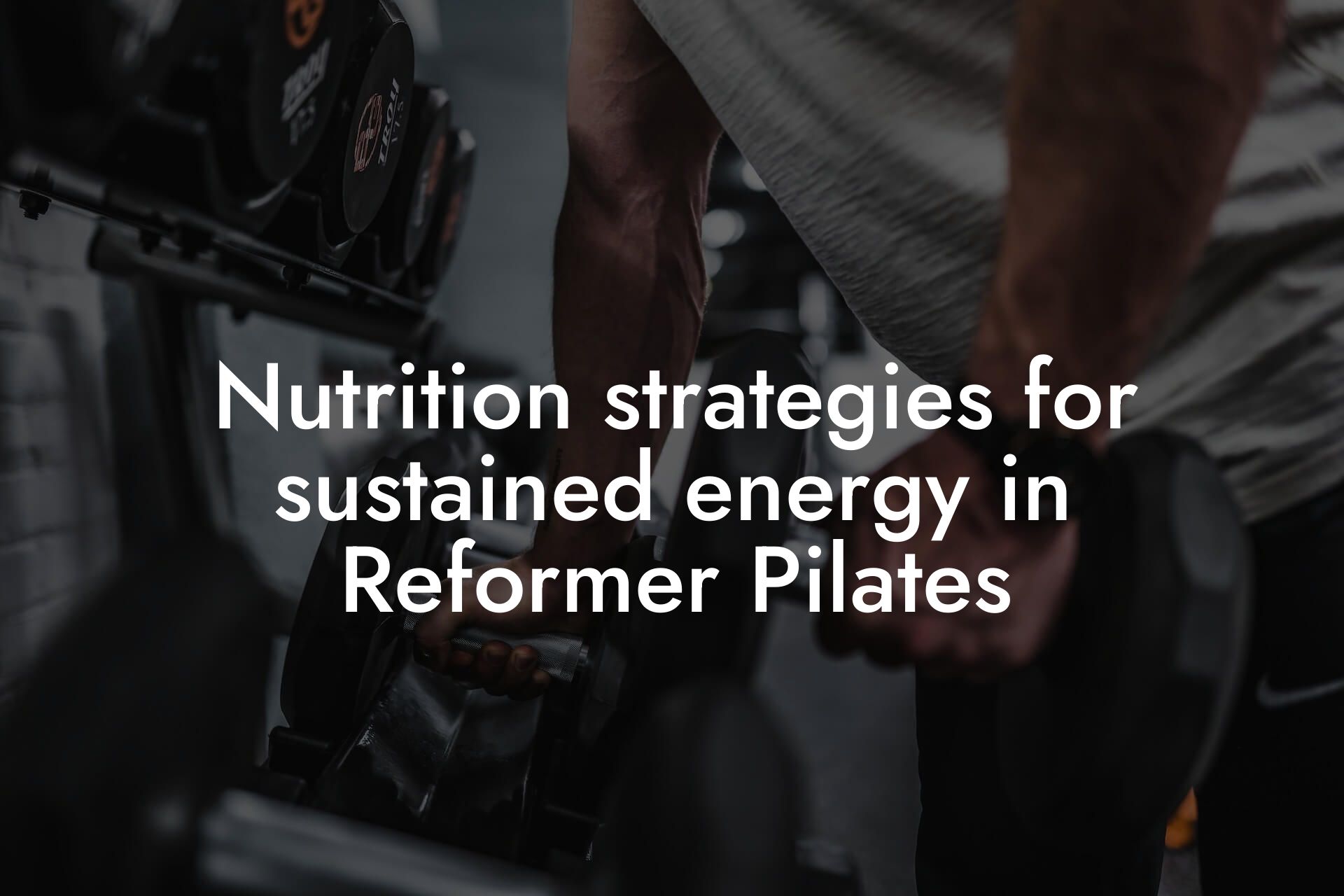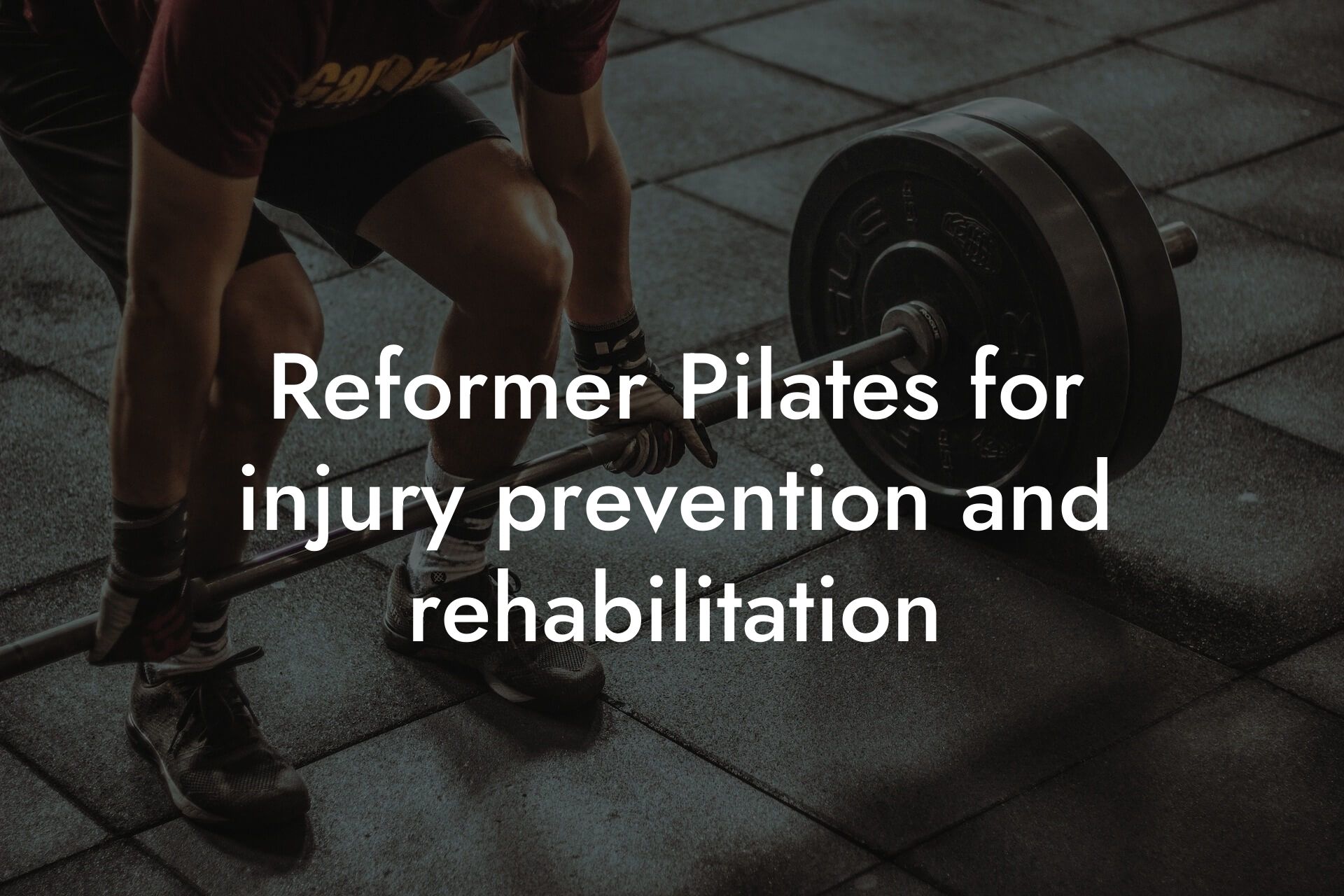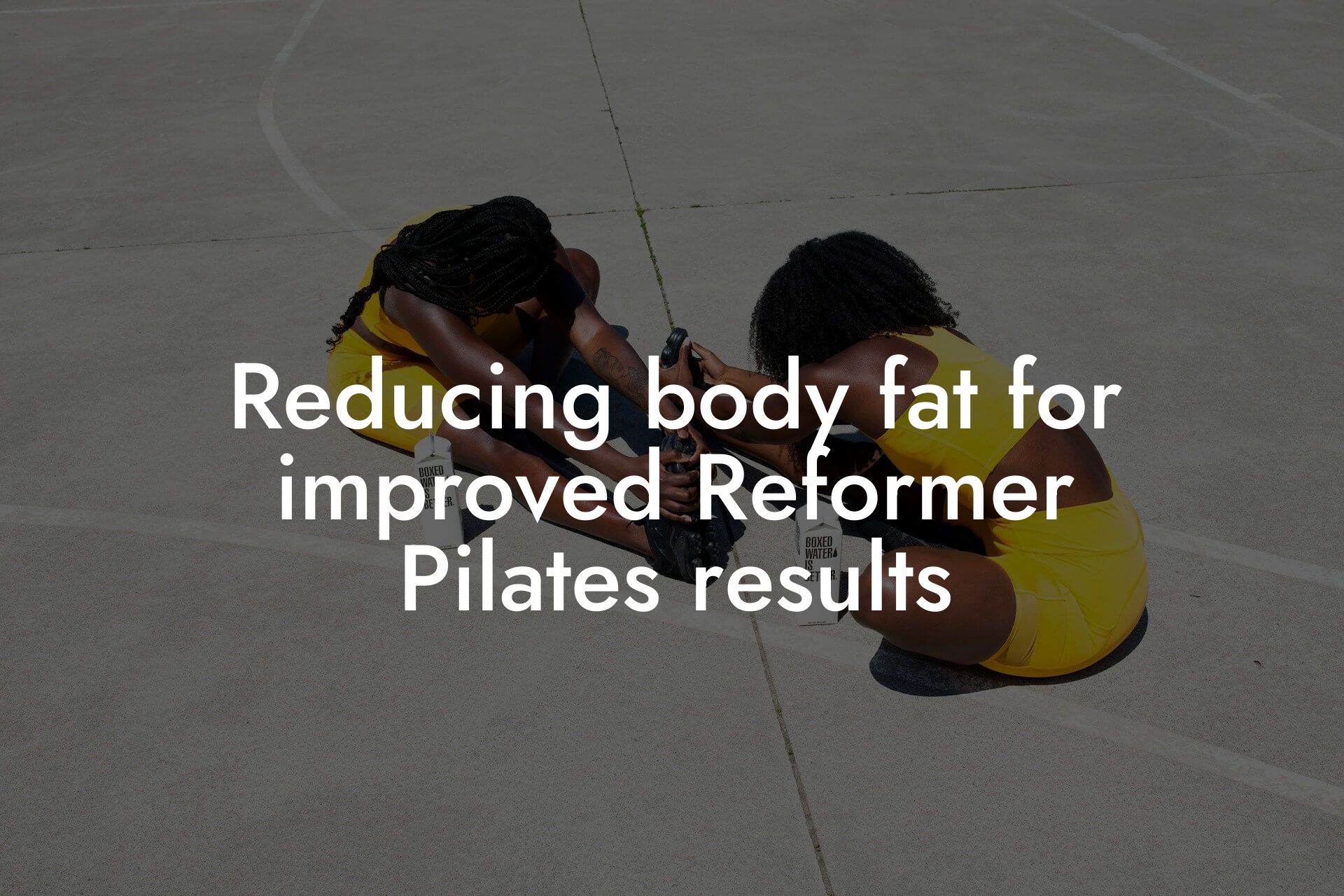As a high-earning professional, you understand the importance of maintaining a healthy and toned physique. Reformer Pilates is an excellent way to achieve this goal, but did you know that incorporating DEXA scans into your training can take your results to the next level? In this article, we'll explore the benefits of using DEXA scans to optimize your Reformer Pilates training and provide you with a comprehensive guide on how to get started.
Table of Contents
What is a DEXA Scan?
A DEXA (Dual-Energy X-ray Absorptiometry) scan is a non-invasive, pain-free test that measures bone density, body composition, and fat distribution. It's a valuable tool for assessing overall health and fitness, providing a detailed picture of your body's composition. DEXA scans are commonly used in the medical field to diagnose osteoporosis, but they're also becoming increasingly popular among fitness enthusiasts and athletes who want to optimize their training and nutrition.
How Does a DEXA Scan Work?
A DEXA scan uses low-level X-rays to measure the density of your bones and the amount of fat and lean tissue in your body. The scan itself is quick and easy, taking around 10-15 minutes to complete. You'll lie down on a table, and the DEXA machine will pass over your body, taking precise measurements. The resulting data is then used to create a detailed report outlining your body composition, bone density, and other key metrics.
What Can a DEXA Scan Tell Me About My Body?
A DEXA scan provides a wealth of information about your body, including:
- Body fat percentage: Accurate measurement of your body fat percentage, including visceral fat (fat around your organs)
- Lean mass: Measurement of your muscle mass and other lean tissues
- Bone density: Assessment of your bone health, including risk of osteoporosis or osteopenia
- Fat distribution: Identification of areas where you may be storing excess fat, such as around your midsection or hips
- Muscle imbalances: Detection of muscle imbalances or weaknesses that may be affecting your posture, movement, or overall performance
How Can DEXA Scans Optimize My Reformer Pilates Training?
By incorporating DEXA scans into your Reformer Pilates training, you can:
- Identify areas of muscle imbalance or weakness, allowing you to target specific exercises to improve overall strength and stability
- Track changes in body composition, ensuring that you're losing fat and gaining lean muscle mass
- Monitor bone density, reducing the risk of osteoporosis or osteopenia
- Develop a more personalized and effective workout routine, tailored to your unique needs and goals
- Enhance your overall performance and physique, giving you a competitive edge in your profession and personal life
How to Use DEXA Scan Data to Inform Your Reformer Pilates Training
Once you have your DEXA scan results, it's essential to know how to interpret and apply the data to your Reformer Pilates training. Here are some tips to get you started:
- Focus on exercises that target areas of muscle imbalance or weakness identified in your scan
- Incorporate exercises that promote bone density, such as weight-bearing movements or resistance training
- Adjust your workout routine to include more fat-burning exercises, such as high-intensity interval training (HIIT)
- Monitor your progress regularly, using DEXA scans to track changes in body composition and adjust your training accordingly
Benefits of Regular DEXA Scans for Reformer Pilates Training
Regular DEXA scans can provide numerous benefits for Reformer Pilates enthusiasts, including:
- Enhanced accountability: Regular scans help you stay motivated and accountable, ensuring you're on track to meet your fitness goals
- Personalized training: DEXA scan data allows you to tailor your workout routine to your unique needs and goals, maximizing results
- Injury prevention: By identifying areas of muscle imbalance or weakness, you can take proactive steps to prevent injuries and maintain optimal performance
- Improved overall health: Regular DEXA scans provide a comprehensive picture of your overall health, allowing you to make informed decisions about your nutrition, training, and lifestyle
Incorporating DEXA scans into your Reformer Pilates training can be a game-changer for high-earning professionals looking to optimize their physique and performance. By providing a detailed picture of your body composition, bone density, and muscle imbalances, DEXA scans empower you to make informed decisions about your training and nutrition. At Tano Performance Group, we're committed to helping you achieve your fitness goals and unlock your full potential. Contact us today to learn more about our DEXA scan services and how they can benefit your Reformer Pilates training.
Frequently Asked Questions
What is a DEXA scan and how does it relate to Reformer Pilates training?
A DEXA (Dual-Energy X-ray Absorptiometry) scan is a non-invasive medical test that measures bone density, body composition, and fat distribution. In the context of Reformer Pilates training, DEXA scans can help optimize your workout routine by providing valuable insights into your body's composition, allowing you to tailor your exercises to target specific areas of improvement.
How does a DEXA scan work?
A DEXA scan uses low-level X-rays to measure the density of your bones and the composition of your body. During the scan, you'll lie on a table while an X-ray arm passes over your body, taking precise measurements of your bone density, lean mass, and fat mass. The entire process typically takes around 10-15 minutes.
What can a DEXA scan tell me about my body?
A DEXA scan can provide a wealth of information about your body, including your bone density, body fat percentage, lean mass, and visceral fat area. This data can help identify areas of improvement, such as low bone density or high body fat percentage, allowing you to adjust your Reformer Pilates training accordingly.
How can DEXA scans help with Reformer Pilates training?
By providing detailed information about your body composition, DEXA scans can help you optimize your Reformer Pilates training in several ways. For example, if the scan reveals low bone density, you can focus on exercises that target bone-building and strengthening. Similarly, if the scan shows high body fat percentage, you can adjust your workout routine to include more fat-burning exercises.
What are the benefits of using DEXA scans in Reformer Pilates training?
The benefits of using DEXA scans in Reformer Pilates training are numerous. They can help you optimize your workout routine, improve your overall health and fitness, and provide a more accurate measure of progress than traditional methods like weight or body mass index (BMI). Additionally, DEXA scans can help identify potential health risks, such as osteoporosis or obesity, allowing you to take proactive steps to address them.
How often should I get a DEXA scan?
The frequency of DEXA scans depends on your individual goals and needs. If you're using DEXA scans to optimize your Reformer Pilates training, you may want to get scanned every 6-12 months to track your progress and make adjustments to your workout routine as needed. However, if you have a specific health concern, such as osteoporosis, your healthcare provider may recommend more frequent scans.
Are DEXA scans safe?
Yes, DEXA scans are safe and non-invasive. The X-ray energy used in DEXA scans is very low, and the scan itself is painless and quick. However, if you're pregnant or breastfeeding, you should consult with your healthcare provider before undergoing a DEXA scan.
How do I prepare for a DEXA scan?
To prepare for a DEXA scan, avoid eating or drinking for at least 2 hours before the scan, and wear loose, comfortable clothing without metal fasteners or jewelry. You should also inform your healthcare provider if you've had any recent surgeries, implants, or other medical procedures.
What is the difference between a DEXA scan and a body fat scale?
A DEXA scan provides a much more detailed and accurate measurement of body composition than a body fat scale. While a body fat scale can estimate body fat percentage, it may not account for factors like muscle mass, bone density, and visceral fat area, which are all measured by a DEXA scan.
Can I use DEXA scans to track my progress in Reformer Pilates training?
Absolutely! DEXA scans can provide a precise measure of your progress in Reformer Pilates training, allowing you to see changes in your body composition over time. This can be a powerful motivator and help you stay on track with your fitness goals.
How does Reformer Pilates training benefit bone density?
Reformer Pilates training can benefit bone density by providing a low-impact, weight-bearing exercise that stimulates bone growth and strengthening. This can be especially beneficial for individuals with osteoporosis or osteopenia, as it can help improve bone density and reduce the risk of fractures.
What is visceral fat, and how does it relate to Reformer Pilates training?
Visceral fat is the fat that accumulates around your internal organs, and it's a key indicator of overall health risk. Reformer Pilates training can help reduce visceral fat by improving insulin sensitivity, boosting metabolism, and increasing fat-burning efficiency.
Can DEXA scans help me identify areas of muscle imbalance?
Yes, DEXA scans can provide valuable insights into muscle imbalance by measuring lean mass and identifying areas of asymmetry. This information can be used to adjust your Reformer Pilates training and target specific areas of improvement.
How does Reformer Pilates training benefit body composition?
Reformer Pilates training can benefit body composition by increasing lean mass, reducing body fat percentage, and improving overall muscle tone and strength. This can lead to a more athletic, toned physique and improved overall health.
What is the relationship between body fat percentage and health risk?
Body fat percentage is a key indicator of health risk, as high body fat percentage is associated with an increased risk of chronic diseases like diabetes, heart disease, and certain types of cancer. By reducing body fat percentage through Reformer Pilates training and other healthy lifestyle habits, you can lower your risk of these diseases.
Can DEXA scans help me set realistic fitness goals?
Absolutely! DEXA scans can provide a baseline measurement of your body composition, allowing you to set realistic and achievable fitness goals. By tracking your progress over time, you can adjust your goals and stay motivated to continue improving your health and fitness.
How does Reformer Pilates training benefit overall health and wellness?
Reformer Pilates training can benefit overall health and wellness by improving flexibility, balance, and posture, reducing stress and anxiety, and increasing overall physical fitness. By incorporating Reformer Pilates training into your fitness routine, you can experience a range of benefits that extend far beyond just physical appearance.
What is the role of nutrition in Reformer Pilates training?
Nutrition plays a critical role in Reformer Pilates training, as a healthy diet can help support muscle growth and repair, improve body composition, and provide the energy needed to power your workouts. By fueling your body with a balanced diet, you can optimize your results and achieve your fitness goals faster.
Can DEXA scans help me identify underlying health issues?
Yes, DEXA scans can help identify underlying health issues, such as osteoporosis, osteopenia, or visceral fat accumulation, which can increase your risk of chronic diseases. By identifying these issues early, you can take proactive steps to address them and improve your overall health and wellness.
How does Reformer Pilates training benefit mental health?
Reformer Pilates training can benefit mental health by reducing stress and anxiety, improving mood, and increasing overall sense of well-being. By incorporating Reformer Pilates training into your fitness routine, you can experience a range of mental health benefits that can improve your overall quality of life.
What is the best way to incorporate DEXA scans into my Reformer Pilates training?
The best way to incorporate DEXA scans into your Reformer Pilates training is to work with a qualified healthcare provider or fitness professional who can help you interpret the results and develop a personalized workout routine tailored to your specific needs and goals.
Can DEXA scans help me improve my athletic performance?
Absolutely! DEXA scans can provide valuable insights into your body composition, allowing you to optimize your athletic performance by targeting specific areas of improvement, such as increasing lean mass or reducing body fat percentage.
What is the cost of a DEXA scan?
The cost of a DEXA scan varies depending on the location, provider, and type of scan. On average, a DEXA scan can cost anywhere from $50 to $200. However, the cost may be covered by your healthcare provider or insurance plan, so it's best to check with them beforehand.
How long does it take to get the results of a DEXA scan?
The results of a DEXA scan are typically available within 24-48 hours, although this may vary depending on the provider and type of scan. Your healthcare provider will review the results with you and provide a detailed report outlining your body composition, bone density, and other key metrics.
Here are some related articles you might love...
- Nutrition strategies for sustained energy in Reformer Pilates
- Reformer Pilates for injury prevention and rehabilitation
- Reducing body fat for improved Reformer Pilates results
- How to integrate Reformer Pilates into a balanced fitness routine
- Maintaining muscle tone and flexibility with Reformer Pilates
- How body composition impacts Reformer Pilates performance
- Recovery strategies for Reformer Pilates practitioners
- Bone density and its role in Reformer Pilates practice
- The importance of core strength in Reformer Pilates
Zak Faulkner
Zak Faulkner is a leading authority in the realm of physical health and body composition analysis, with over 15 years of experience helping professionals optimise their fitness and well-being. As one the experts behind Tano Performance Group, Zak has dedicated his career to providing in-depth, science-backed insights that empower clients to elevate their physical performance and overall health.
With extensive knowledge of DEXA technology, Zak specializes in delivering comprehensive body assessments that offer precise data on body fat, muscle mass, bone density, and overall physique. His expertise enables individuals to make informed decisions and achieve their fitness goals with accuracy and confidence. Zak’s approach is rooted in a deep understanding of human physiology, combined with a passion for helping clients unlock their full potential through personalised strategies.
Over the years, Zak has earned a reputation for his commitment to excellence, precision, and client-focused service. His guidance is trusted by top professionals who demand the best when it comes to their health. Whether advising on fitness programs, nutritional strategies, or long-term wellness plans, Zak Faulkner’s insights are a valuable resource for anyone serious about taking their health and fitness to the next level.
At Tano Performance Group, Zak continues to lead our Content Team revolutionising how professionals approach their physical health, offering unparalleled expertise that drives real results.




